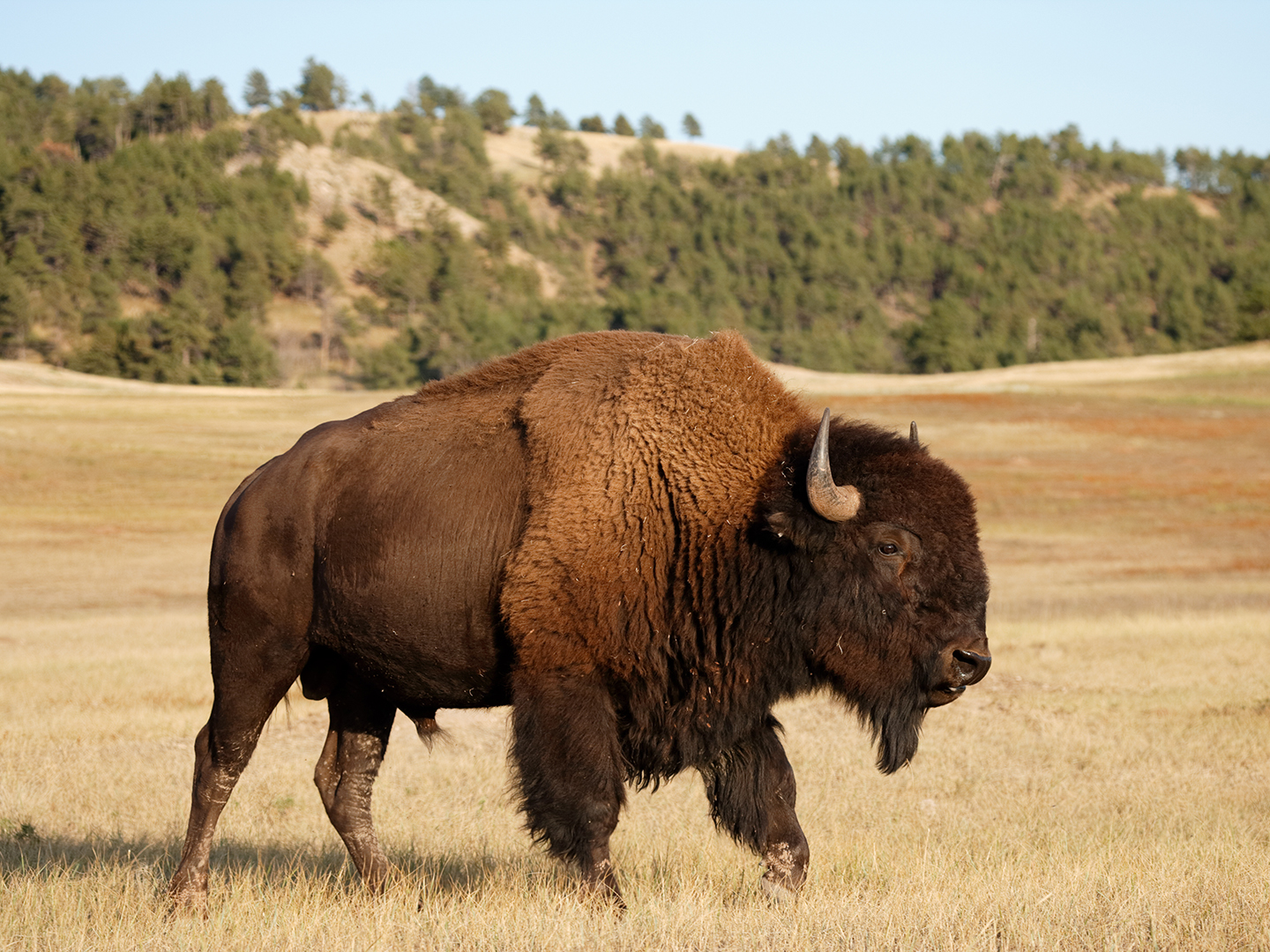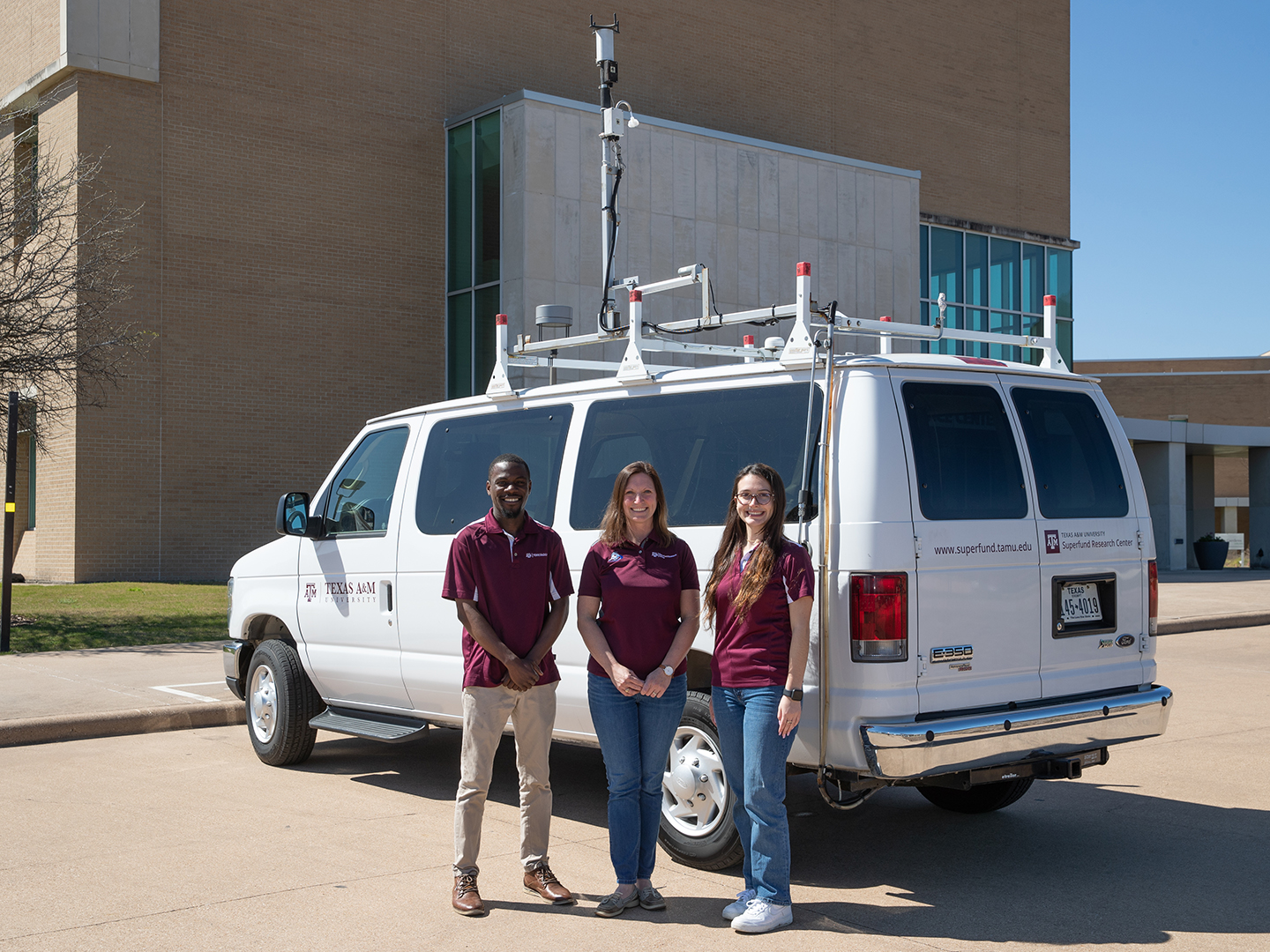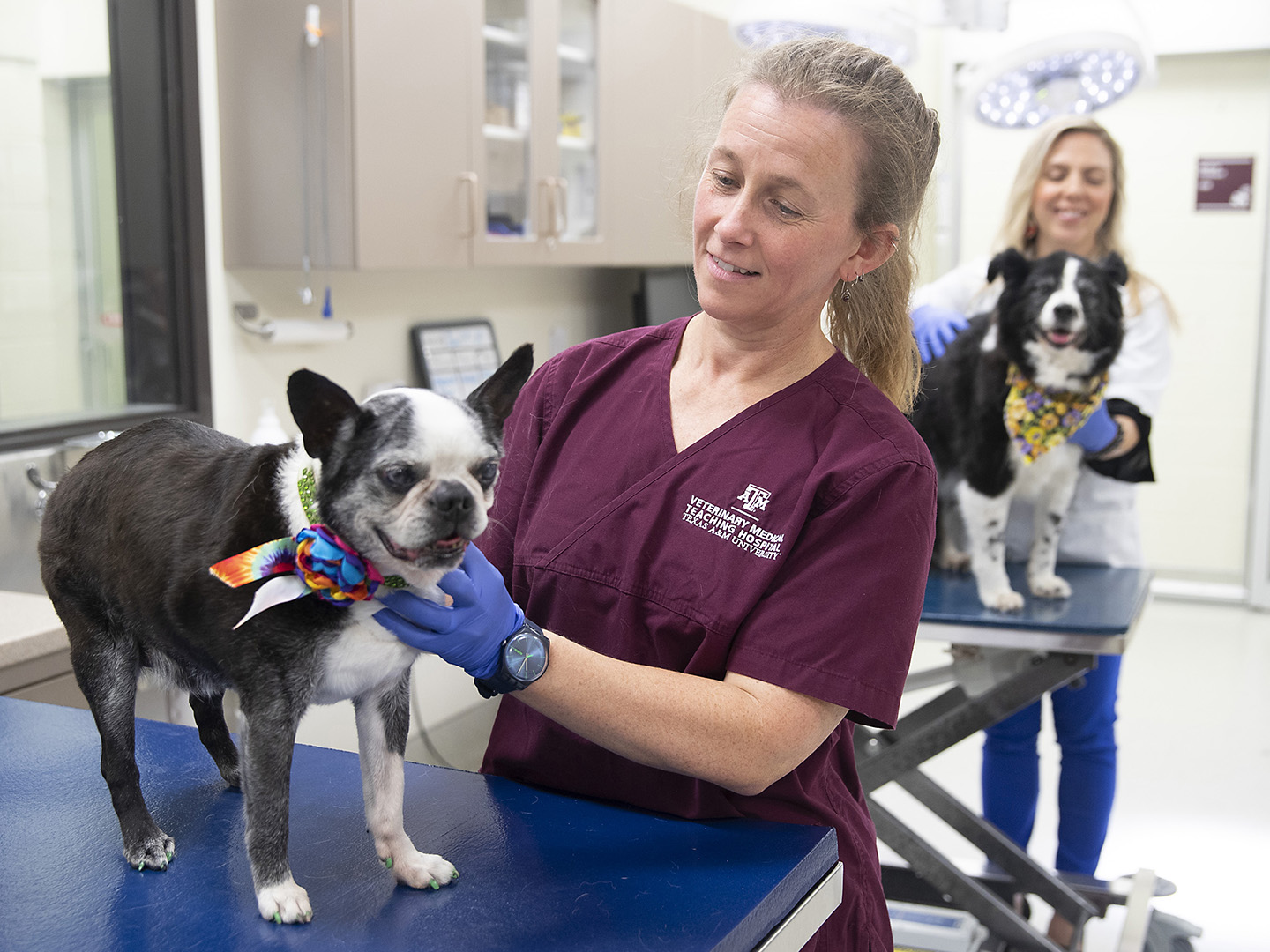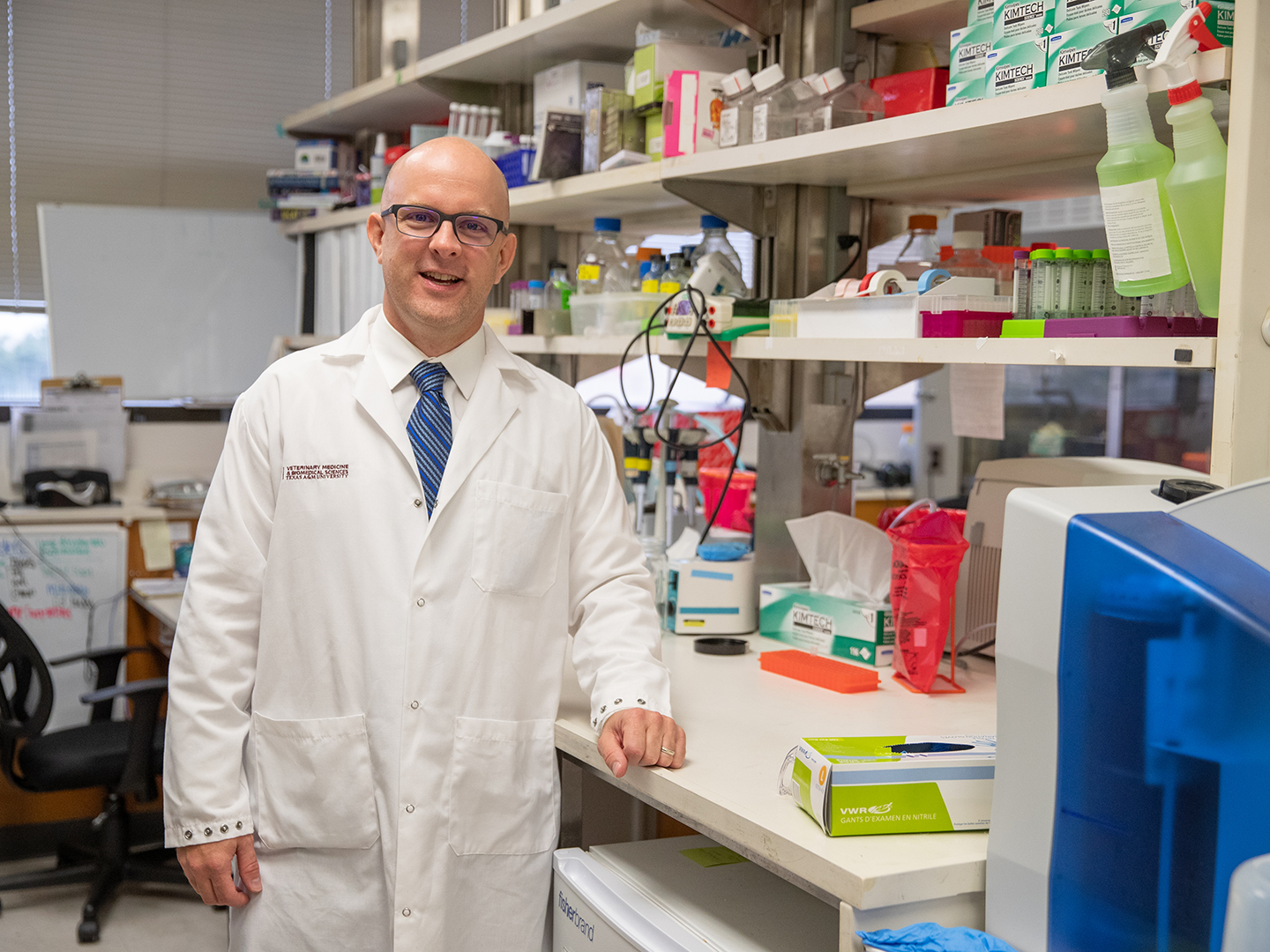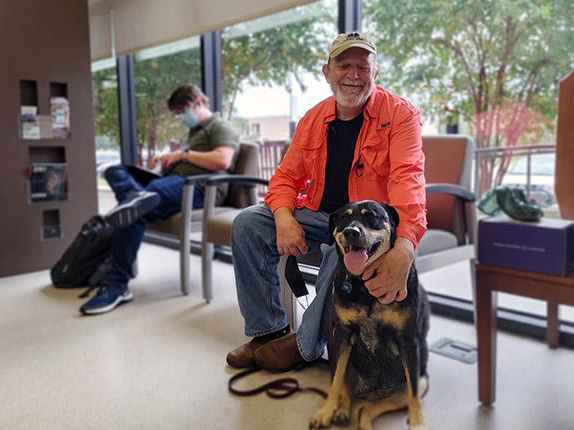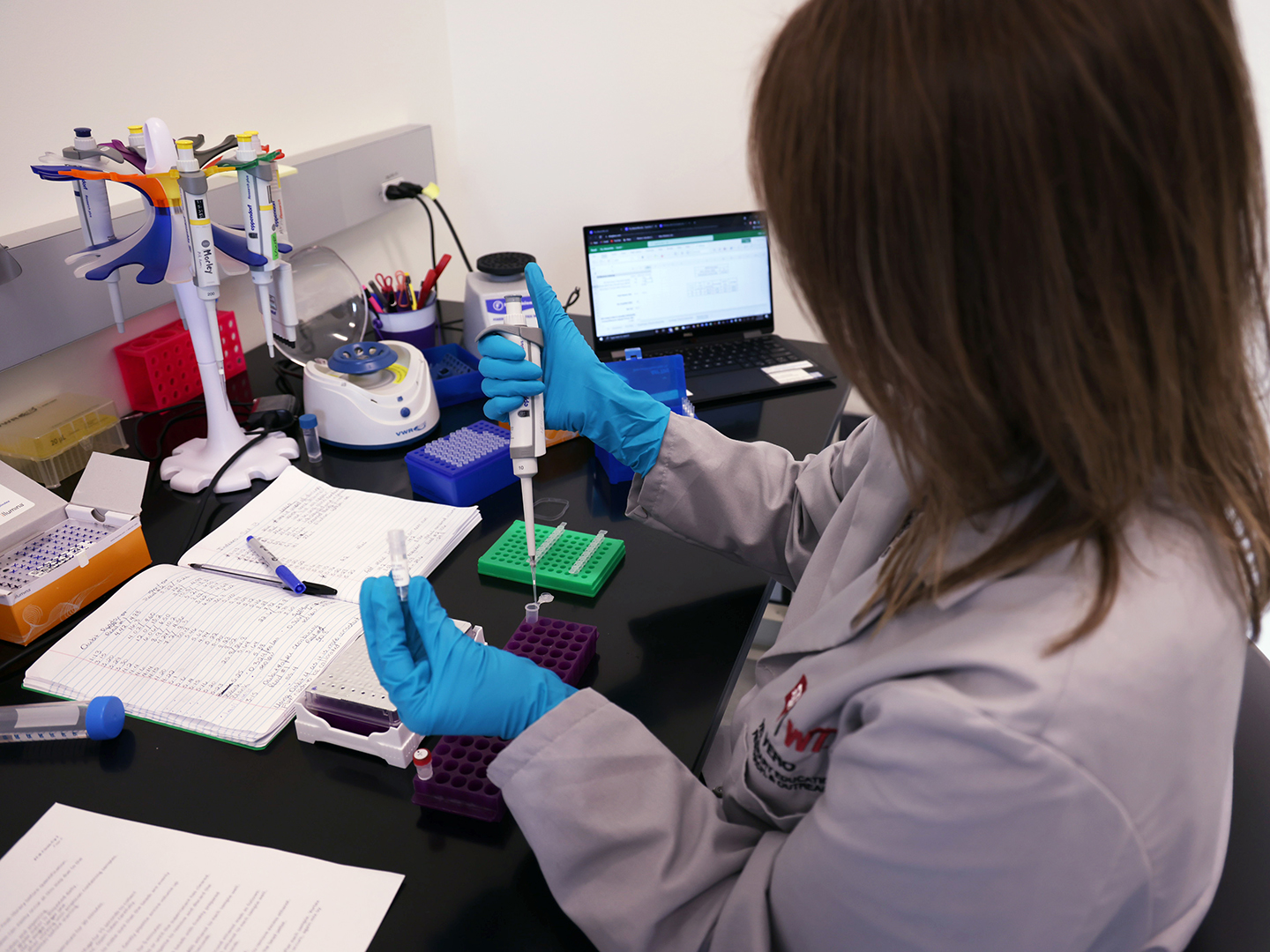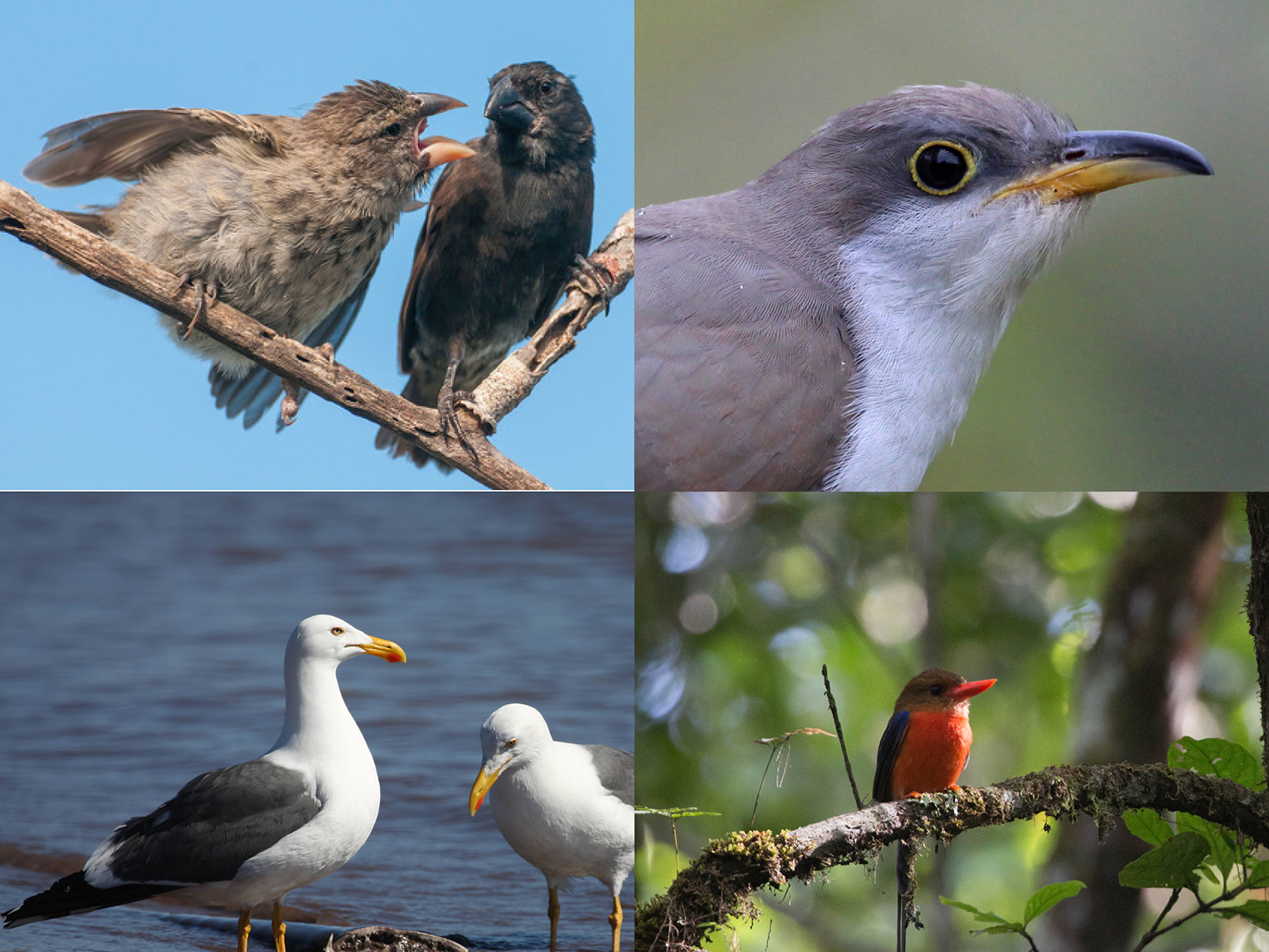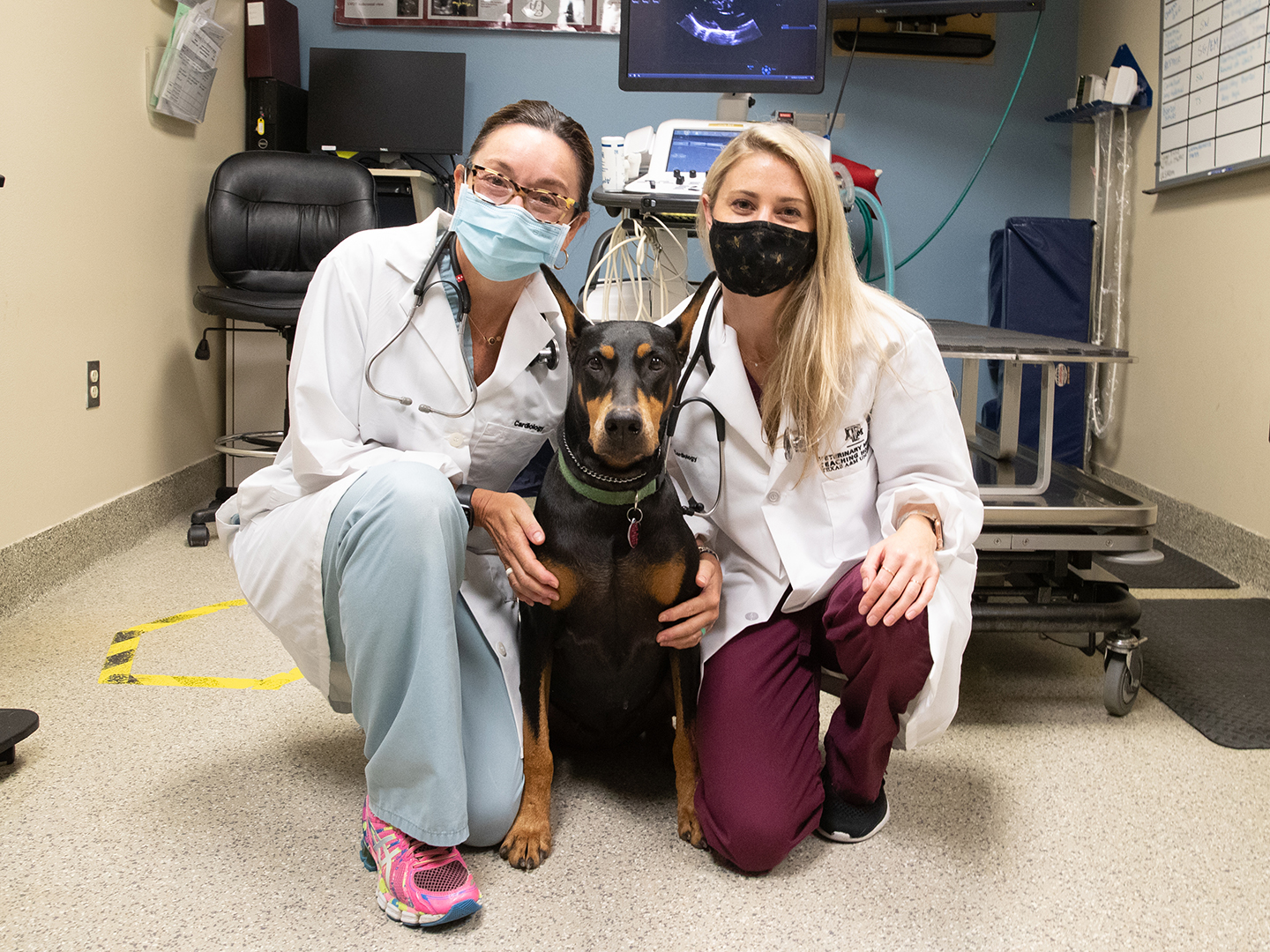New Research Documents Domestic Cattle Genetics In Modern Bison Herds
A new study published in Scientific Reports has revealed the strongest evidence to date that all bison in North America carry multiple small, but clearly identifiable, regions of DNA that originated from domestic cattle. In the study, Texas A&M College of Veterinary Medicine & Biomedical Sciences (CVMBS) researchers, led by Drs. James Derr and Brian […]
New Mobile Testing Resource To Provide Advanced Data On Chemical Air Pollutants
Texas A&M University’s new mRAPiD air quality testing van, a collaboration between the Superfund Research Center and School of Public Health, will give researchers and communities the ability to detect hazardous chemical air pollutants in real time, while on location. mRAPiD, which stands for “mobile Responding to Air Pollution in Disasters,” was developed for responding […]
Texas A&M Professors Granted $1.2 Million To Enhance Diversity In Neuroscience
A five-year grant of more than $1.2 million from the National Institutes of Health (NIH) will promote diversity in the field of neuroscience by supporting diverse, research-intensive communities at Texas A&M University. The grant will be used to create a Neuroscience Research Leadership Program modeled on the successful Aggie Research Program (ARP). Dr. Christopher Quick, […]
Texas A&M, UW Researchers Explore Canine Aging Project In Nature Article
The Dog Aging Project team outlines how the open-source data it is gathering could be useful for myriad studies. In 2018, the Dog Aging Project set out to become the largest research data-gathering program of its kind, seeking to enroll and study tens of thousands of dogs from all backgrounds to gain a better understanding […]
CVMBS Study Shows Paternal Alcohol Use Increases Frequency Of Fetal Development Issues
Prenatal visits have traditionally focused almost exclusively on the behavior of mothers, but new research from the Texas A&M College of Veterinary Medicine & Biomedical Sciences (CVMBS) continues to suggest that science should be looking more closely at the fathers’ behavior as well. Dr. Michael Golding, an associate professor in the CVMBS’ Department of Veterinary […]
New Study Indicates Captive Texas Deer Can Contract, Likely Transmit SARS-CoV-2 Virus To Each Other
A new study by Texas A&M’s College of Veterinary Medicine & Biomedical Sciences (CVMBS) has revealed that captive white-tailed deer in Texas are susceptible to SARS-CoV-2, the virus that causes COVID-19. With over 90% of the captive deer at one facility testing positive for the virus, the authors indicate their findings likely reflect deer-to-deer transmission. […]
Tech Entrepreneurs Pledge $2.5 Million To Dog Aging Project
The Dog Aging Project, a scientific initiative to help companion dogs and people live longer, healthier lives together, has received a $2.5 million pledge from a consortium of tech entrepreneurs. The Dog Aging Project brings together a community of dogs, owners, veterinarians, researchers, and volunteers to carry out the largest canine health study in the […]
Texas A&M VERO Representatives Share Inspiring Research At International Conference
Researchers from the Texas A&M College of Veterinary Medicine & Biomedical Sciences’ (CVMBS) Veterinary Education, Research, & Outreach (VERO) program recently shared 12 abstracts detailing their work on topics ranging from common diseases in feedlot cattle to the calf microbiome during the Conference of Research Workers in Animal Diseases. The team of four faculty members, […]
Texas A&M Researcher Discovers Why Darwin’s Finches Have Different Beak Colors
Dr. Leif Andersson, a professor at the Texas A&M College of Veterinary Medicine & Biomedical Sciences (CVMBS) and Uppsala University, and researchers from Uppsala and Princeton universities have uncovered the genetic basis for the yellow beak color of some Darwin’s finch nestlings. Several species of Darwin’s finch nestlings have a beak color that is either […]
Texas A&M Seeks Dogs With Cardiac Condition For Study On Heart Drug
Researchers aim to determine if rapamycin can be used to treat preclinical dilated cardiomyopathy, the second most-common acquired cardiac disease in dogs. Dilated cardiomyopathy (DCM) is the second most-common acquired cardiac disease in dogs. In its early stage, called the preclinical stage, dogs are apparently healthy to their owners, but beneath the surface, DCM causes […]

